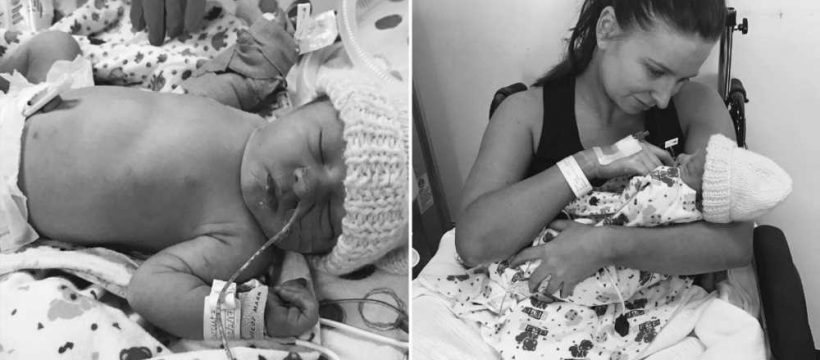ONE of the most exciting experiences in your pregnancy is feeling your baby move for the very first time.
But it's sometimes hard to know if the movement you're experiencing, and that can be concerning – especially for new mums.
One mum saved her unborn child thanks to some advice she received from a woman who lost her own baby in the womb.
Writing on the baby first aid Instagram page, Tiny Hearts Education, the mum said she began experiencing a "rapid increase in movements" from inside her tummy while pregnant with her baby, Nahla.
She instantly knew this was abnormal because of a conversation she'd had with another woman who'd had a stillbirth a few months earlier.
According to the mum, the woman had a "experienced a massive unnatural spike in her baby's movements" before they "stopped and slowed".
Read more on pregnancy
Warning to pregnant women as common condition ‘increases risk of brain issues’
Common condition in pregnancy ‘increases mum’s risk of killer heart problems’
"[The woman] never knew an increase could also mean something was wrong," the mum said.
This meant that when the mum experienced an increase in movements from her own unborn baby, she new it was "a warning sign" and rushed to hospital.
Doctors were forced to perform an emergency c-section when the mum was 37 weeks pregnant. Baby Nahla was then transported by ambulance to another hospital for "special treatment".
"If I hadn’t have heard this story I’m not sure my daughter would be here today," she explained.
Most read in Health

How to survive the pollen bomb & stop hay fever – from clothes to drinks

I was malnourished from invisible condition that 'set my mouth on fire'

How to reverse your type 2 diabetes in 5 simple steps as cases hit 5million

Here are the harrowing last days of our child so other parents avoid our agony
The mum did not explain what was wrong with baby Nahla in the post.
But, when a baby moved vigorously in the womb, this can be a sign of a lack of oxygen, infection, or the foetus trying to get free of the umbilical cord entangled around some part of the body.
In one study, frantic foetal movements were linked to a sevenfold risk of stillbirth.
The mum added: "Please don’t feel silly about contacting your healthcare team if your worried about a change in strength, pattern or frequency of movements.
"You grow them, you know them best, trust that."
How often should my baby move in pregnancy?
Baby movements in the womb, also known as fetal movements or ‘kicks’, can feel like anything from a flutter, kick, swish or roll. The type of movement may change as your pregnancy progresses.
According to the pregnancy and baby-loss charity Tommy's, there is no set number of normal movements you should be feeling – every baby is different.
Your baby will have their own pattern of movements that you should get to know.
From 18-24 weeks on you should feel the baby move more and more. After 32 weeks, the movements will stay roughly the same until you give birth.
It is not true that babies move less towards the end of pregnancy.
You should continue to feel your baby move right up to the time you go into labour and during labour.
Get to know your baby’s normal pattern of movements, they say.
Read More on The Sun
Gemma Owen sparks Love Island feud rumours as she snubs show winner
Shopper ditches Aldi for M&S and is blown away by how cheap some bits are
And don't until the next day to seek advice if you are worried about your baby’s movements.
Contact your midwife or maternity unit immediately if you think your baby’s movements have slowed down, stopped or changed. There are staff on the hospital maternity unit 24 hours a day, 7 days a week.
Source: Read Full Article






